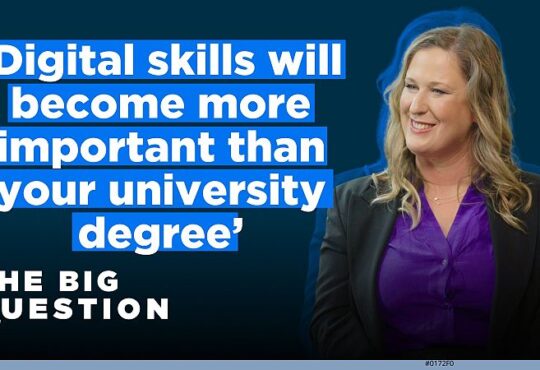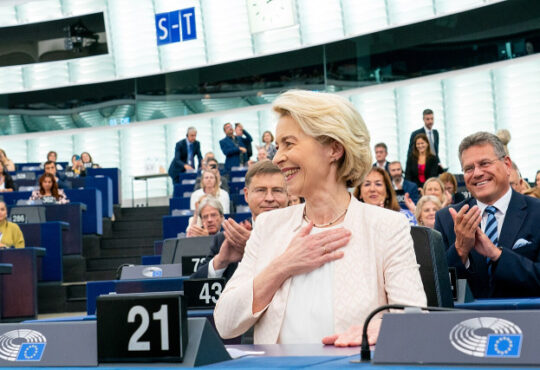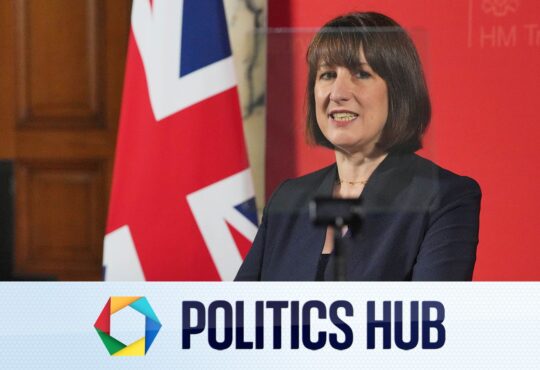Unlock the Editor’s Digest for free
Roula Khalaf, Editor of the FT, selects her favourite stories in this weekly newsletter.
The UK economy will need to grow at three times this year’s expected rate if the new Labour government is to avoid a hole in the public finances, the IMF has warned, in a stark illustration of the challenges facing chancellor Rachel Reeves as she prepares for a landmark Budget this autumn.
GDP growth would need to be around 2.6 per cent every fiscal year from 2025-26 if Labour is to stabilise public debt by 2028-29 without extra tax rises or spending cuts, according to IMF staff estimates provided to the FT.
The figures underline the challenge Labour faces in the autumn budget as it pins its hopes on higher growth rates to ease the need for big tax increases.
Reeves is set to outline the harsh fiscal inheritance confronting Labour in the coming days, before the MPs break for the annual summer parliamentary recess. A new “Growth Mission Board”, which she will chair, is due to meet this week.
Reeves has warned that she faces “difficult choices” in the budget, but during the election campaign Labour ruled out increases in four specific taxes and insisted that reforms which will deliver a higher rate of growth would help the public finances.
It has left open the possibility of raising other taxes, however.
Sir Keir Starmer’s government has vowed to “take the brakes off Britain” in its legislative plan, focusing on planning reforms and green investment.
But the IMF numbers suggest that even if pro-growth reforms in areas such as planning bear some fruit, it will be difficult for Labour to avoid a tough fiscal consolidation via tax rises and spending cuts.
Earlier this month the IMF released calculations showing that the UK budget balance excluding interest payments will need to improve by between 0.8 and 1.4 percentage points of GDP per year to get debt under control.
A Treasury spokesperson said the government was “under no illusions” about the scale of the challenge facing the economy.
“Delivering economic growth will require tough choices and difficult decisions,” the spokesperson said. “That is why we have already started to take the action necessary to fix the foundations of our economy, so we can rebuild Britain and make every part of our country better off.”
The IMF’s latest report on the UK, prepared when Jeremy Hunt was chancellor and published earlier this month, urged ambitious changes in the areas of planning, skills and healthcare, as part of a stable, long-term growth strategy, potentially co-ordinated by an independent growth commission.
“Even if reforms in these key areas are implemented and provide some boost to potential growth, stabilising public debt is still likely to require some difficult tax and spending choices, given the size of the fiscal challenge,” the IMF said in a statement to the FT.
“Annual real GDP growth would need to be significantly higher — around 1 percentage point higher, on average, above staff’s baseline projections from 2025-26 onward — in order to stabilise public debt by 2028-29 without additional fiscal consolidation measures.”
The IMF forecasts that the UK’s economy will grow by 0.9 per cent in the current fiscal year, ending in April 2025. That is projected to rise to around 1.6 or 1.7 per cent in the remaining years of this parliament.
The Office for Budget Responsibility expects growth rates of up to 2 per cent in the coming years, but its predictions are higher than many other forecasters, including the IMF and the Bank of England.
Its forecasts include higher estimates of productivity growth as well as a bullish view about what pace of growth is sustainable.
The figures come as a separate report from the Institute for Government shows that on current spending trajectories most public services are likely to be performing worse at the next election than in 2019.
Labour’s implied spending plans are less generous than any of the five spending reviews undertaken by the Blair and Brown governments between 1998 and 2007, it says, and are the tightest since 2015.
It warns they won’t be enough to deliver the improved performance demanded by the public.
As part of its push for economic growth, the government will on Monday launch Skills England, which will be tasked with addressing Britain’s skills training system in part to reduce reliance on overseas skilled workers.
Richard Pennycook, former Co-op chief executive, will serve as interim chair of the body, which education secretary Bridget Philipson said would “jump-start young people’s careers and galvanise local economies”.




